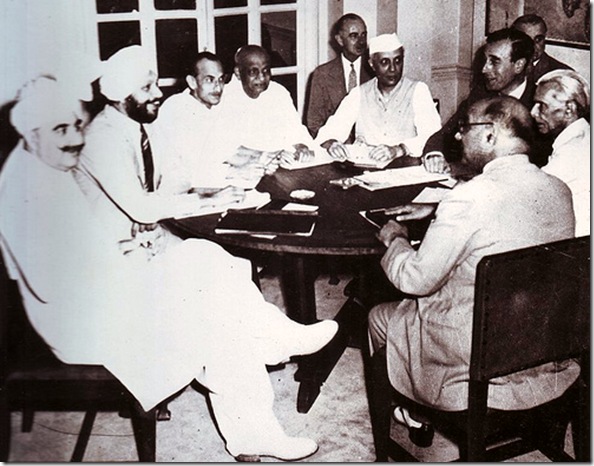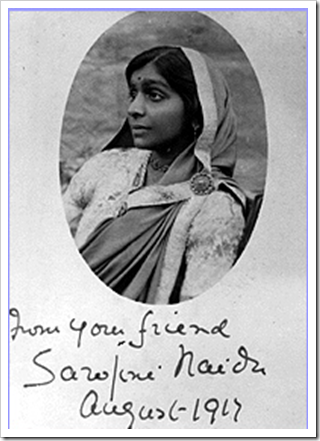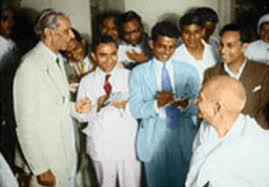 |
| Quaid-e-Azam with Master Tara Singh & Khizar Hayat Tiwana |
More strikingly, the Quaid was not only a great defender of the cause of Pakistan, he equally struggled to safeguard the interest of all minority communities in India, irrespective of race, religion and colour. A moderate leader, he stood for a just and honourable treatment of them. Belonging himself to a minority nation, the Indian Muslims, he well understood the minority peoples. At the same time, he fully realized the dominating behaviour and mentality of majority people, the Hindus. A far-sighted politician, he did comprehend the future designs of Hindu majority raj in India. Anyway, the Quaid always remained anxious about the future of minorities in undivided India. “To live and let live” was the basic principle of his political philosophy. To support the cause of any community was an article of faith with him. He often sympathized the grievances of scheduled castes and frequently advocated the cause of Sikhs.










